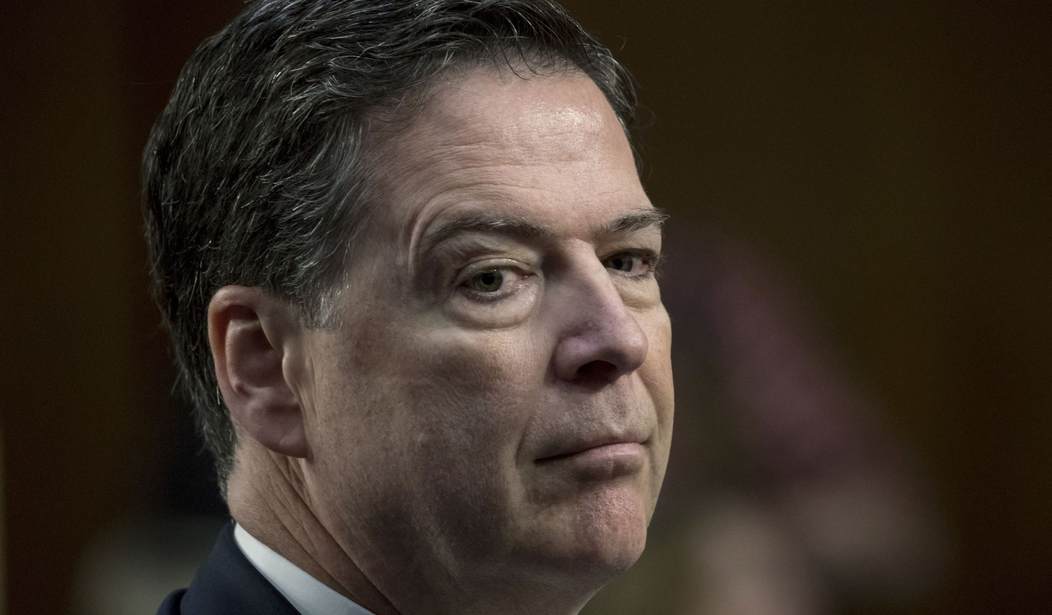Social media went nuts this week when James Comey, the former FBI director and a longtime antagonist of Donald Trump, posted a photo on Instagram of the numbers “86” and “47” scrawled in seashells on a beach with the caption “Cool shell formation on my beach walk.” The image quickly drew outrage from Trump supporters, who saw it as a not-so-subtle call to assassinate the 47th president. That interpretation spread like wildfire, with calls for Comey to be investigated.
But let’s pause for a moment. Is this truly a coded call for assassination or just another example of selective outrage driven by political score-settling? James Comey may be a self-centered piece of garbage, and I’m not here to defend him at all. But before we jump to conclusions, maybe it’s worth asking: is the outrage justified, or are we reading too much into a stupid Instagram post?
To answer this question, I did a little research on “86” as a term. It means get rid of, cancel, or eliminate something — or someone — and its origins are debated. Most commonly used in restaurants to indicate getting rid of an item, it likely emerged from diner or soda fountain lingo in the early 20th century. Other theories trace it to Prohibition-era New York, specifically the speakeasy at 86 Bedford Street, where patrons were told to “86 it” during raids. Some link it to military shorthand and Depression-era soup lines.
It’s true that over time, the term has taken on darker connotations, including as a euphemism for killing, particularly in criminal slang.
But there’s enough ambiguity here that it’s hard to justify the claim that this was Comey’s intent.
And Trump supporters know this. The phrase “86 46” circulated widely among Trump supporters during Biden’s term, and nobody in the media treated that as a credible threat, least of all the FBI.
86 46
— Jack Poso 🇺🇸 (@JackPosobiec) January 30, 2022
Also, Amazon still sells “86 46” merchandise.
Apparently this has been a thing for quite a while, judging by Amazon. (In between Trump terms, you would also get '8646' stuff for Biden. But it seemed to start with '8645.') pic.twitter.com/IKblGPMMOe
— Byron York (@ByronYork) May 16, 2025
That double standard raises important questions. If “86 46” wasn’t an assassination threat then, why is “86 47” one now?
Now, of course, there is some important context here. Trump has been the target of at least two assassination attempts, one of which was nearly successful, so Comey’s post, at the very least, could be interpreted as a call for assassination. Could some nutcase anti-Trump interpret it that way? Sure.
Did anyone really think that when Madonna said in January 2017 that she “thought an awful lot about blowing up the White House,” that she really would? Again, I doubt it. Such things ought to be taken seriously, but I’m sure most people who say “86 47” is a call for assassination didn’t think “86 46” was a call for assassination.
Recommended: Here's What The Left Won't Tell You About the Qatar Plane Deal
Secretary of Homeland Security Kristi Noem and FBI Director Kash Patel are treating Comey’s post as a serious threat. And while it’s hard to blame them for taking potential threats seriously — especially given the climate surrounding political violence — it’s worth asking whether this investigation is being driven more by political pressure than by credible risk.
Comey himself insists he merely photographed an arrangement he stumbled upon and thought was politically clever, perhaps calling for his impeachment, not calling for his death. He deleted the post and clarified that violence was never his intention. “It never occurred to me,” he said, “but I oppose violence of any kind so I took the post down.”
Should it have occurred to him? Probably. Comey is a savvy political operator who knows full well how people might interpret a message like that. At the very least, it was reckless and in poor taste. But is it criminal? If anything, this incident is a reminder of how dangerously politicized language has become. The same words or phrases are treated as free speech or violent incitement depending entirely on who says them — and at whom they’re directed.
In the end, Comey’s post may have been petty and provocative. But was it a threat? I think that’s debatable. It’s a question worth asking, especially if we’re going to start treating every online jab as a criminal offense.










